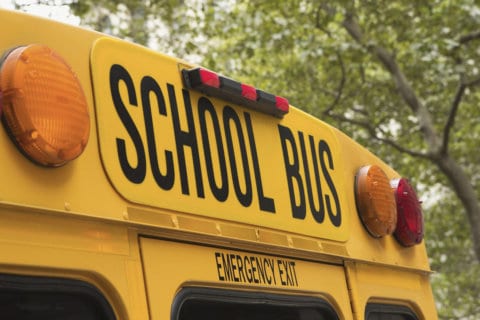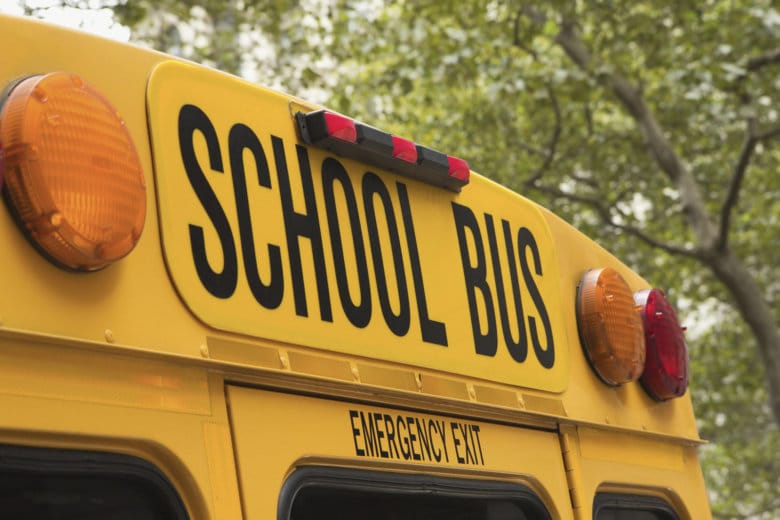
Ask any parent: Middle school can be tough for students — and their parents — as tweens and young teenagers navigate a difficult transition.
“These students, they’re not really feeling like full adults, yet at the same time they don’t feel like they’re children anymore,” said Andrew Aversa, assistant principal at H.H. Poole Middle School, in Stafford, Virginia.
A WTOP listener told us Aversa had found a creative way to connect with students before they even enter the building — he sings karaoke and interacts with students as they get off the bus or are dropped off by parents.
It’s not that Aversa loves doing karaoke in his private life, although he admits “when a good song comes on I’ll just jump in there.” Instead, he’s looking for a way to interact with and motivate students.
“Maybe they’re just having a bad morning. Whatever the emotional state a middle-schooler goes through before they even get to our school can be very difficult,” said Aversa. “I just want to give them the chance to feel a warm welcome.”
With a portable karaoke player and microphone set up on the sidewalk, Aversa sings along while high-fiving students and encouraging them to get in the act.
“Initially, the kids’ reaction — like whenever any adult is doing something they find silly — is a little bit of embarrassment, ” said Aversa. “You see their head goes down.”
After a moment or two: “Then you’ll see the smile come on because they realize ‘Hey, that’s not my parent doing that.”
As adolescents shift from being totally reliant on their parents, to being horrified when their friends see them with their mother or father, Aversa said he is glad to assist in the transition.
Aversa said some songs, like the “Welcome Back, Kotter” theme that he plays on Mondays, often brings a smile to parents’ faces.
“Parents are giving their children over to us, and they need to know the person who is working with and is a guardian of their children is someone they can speak to and relate to,” he said.
Aversa said he knows some middle schoolers say they hate being the center of attention.
“I really need to know who my students are,” said Aversa. “You have to feel the waters — are they willing to participate? I have to base it off the individual child.”
“Some students it’s just a quick wave, and keep moving, and I know that’s the best thing I can do for them,” said Aversa. “Other ones, I have to give a little nudge, get right next to them, start singing, and eventually they break down smiling and laughing and then they join in.”









